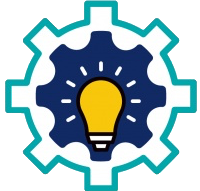Water Boiler Treatment Practice
Details :
This course will provide a comprehensive review of the
principles of boiler water conditioning. The ASME and EPRI Boiler Chemistry
Guidelines will be developed. Oxygen control by means of desecration and
chemical treatment will be reviewed. Boiler design principles will be
developed, including heat transfer, circulation effects, and high-pressure
requirements. The special requirements of HRSGs will be reviewed in depth.
The chemistry and control of
phosphates, chelant, and sludge conditions were be reviewed in depth. Problems
and solutions associated with steam purity and condensate corrosion will be
covered in detail with several practical examples. Guidelines for chemical
cleaning will be developed.
The discussion of the
metallurgical analysis of failed boiler tubes includes a workshop. The course
concludes with destructive and non-destructive options for boiler tube
inspection.
Upon successful completion of
this course, the delegates will be able to:
· Have an
understanding of the chemistry of boiler water treatment for scale, corrosion,
and carryover control, treatment options for the gamut of industrial boiler
system pressures, the options and precautions associated with boiler chemical
cleaning, and metallurgical analysis of failed boiler specimens.
· Have a
strong understanding of the chemistry of ion exchange resins and the operation
of systems using ion exchange resins for water purification, including system
and vessel design parameters. The course also provides practical options to use
when troubleshooting resin-based systems
This is course is intended to those new to the field take away a
good multi-discipline understanding of the issues involved in their work. It
helps them in becoming productive quickly and in building a knowledge framework
that will help them identify, understand, classify and remember on the job
learning and experiences.
Day 1:
Introduction:
·
Water Chemistry, Boiler Water
Quality Requirements
Oxygen Control:
·
Mechanical De-aeration, Chemical
·
Scavenging, Testing
Boiler Calculations:
·
Cycles of Operation, Blow-down
Monitoring
Principles of Internal Treatment:
·
Boiler Design and Heat Flux,
Circulation
Day 2:
Deposition Control:
·
Either Low Pressure—Phosphates,
Chelants, Dispersants or High Pressure—Iron Deposition, Dispersants. EPRI
·
Guidelines (Participants will
Choose One)
Corrosion Control:
·
Either Low Pressure—Corrosion
Control in Cast Iron Boilers, Boiler System Testing or High
Pressure—Coordinated Phosphate/pH, Congruent Control, AVT, Neutral Oxygen
Heat Recovery Steam Generators:
·
Flow and Load Considerations,
Multiple Pressure System Chemistries
Carry-Over Control:
·
Carry-Over Mechanisms, Steam
Purifications, Monitoring
Day 3:
Chemical Cleaning of Boilers:
·
Commissioning Cleaning, Deposit
Monitoring, Deposit Condensate Corrosion: Corrosion Mechanisms, Amine
Treatment, Testing
Condensate Polishing:
·
Mixed Beds, Powdered Resin Units,
Magnetic Filtration
Failure Analysis:
·
Boiler Tube Failure Modes,
Metallurgical Analysis, Metallurgical
Boiler Tube Testing:
·
Workshop
·
Destructive Sampling and
Non-Destructive Testing Methods, Visual Boiler Inspection
Day 4:
Introduction of Ion Exchange:
·
Water Chemistry Units, Pre-treatment
Requirements of Ion Exchange
Ion Exchange Resins:
·
Synthesis, Types, Water of
Hydration, Commercial Equivalents
Ion Exchange Softening:
·
Equipment, Service and
Regeneration Reactions, Troubleshooting
Individual Conferences:
·
Participants’ Water and Resin
Analyses
·
Exhaustion Profiles, Distributor
Design, Regenerate Dilution Systems
Day 5:
Two-Bed Demineralization:
·
Equipment, Service and
Regeneration Reactions, Performance Expectation
Troubleshooting Demineralizers
·
Short Run, Poor Water Quality,
Resin Problems
Mixed Beds:
·
Makeup Mixed Beds, Performance
Expectations, Regeneration
·
Protocols, Three Component
Systems, Uniform Particle Size Resins
Resin Testing:
·
Vessel Inspection, Sample
Procurement, Interpretation of Resin
Analysis,
Decision to Clean or Replace
- All lectures are in colorful presentation
- All lectures are interspersed with interactive discussion
- All lectures include group discussion, case history and exercises
- Actual major incidents as well as industry experience are reviewed
- Participants receive a multicolor course manual
- Pictures of real incidents and case history are shown
- Videos on the subject are shown
08:20 - 10:00 First Session
10:00 -10:20 Coffee / Tea / Snacks
10:20 - 12:20 Second Session
12:20 - 13:30 Lunch Break & Prayer Break
13:30 - 15:00 Last Session

